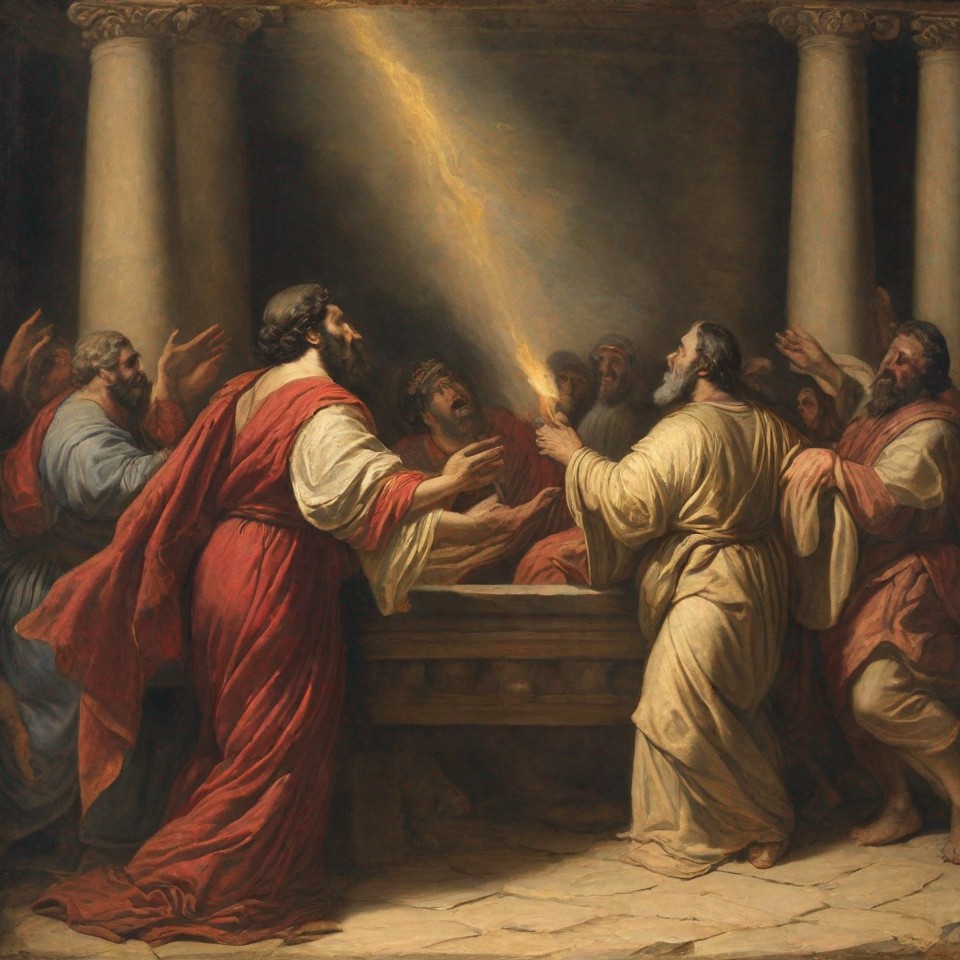
Extreme stress has a way of bringing out your true nature. In dire circumstances, some reveal the selfish and corrupt side of being human, others, however, rise above the fear and panic and reveal godly character. In them, some small part of the image of God shines forth in trying times. In disaster, war or even epidemics like the COVID 19 panic, man’s best and worst is on display: bravery, cowardice, empathy and heartlessness, sense and insensibility.
Throughout the age of the Church, Christians have been on the forefront of helping the sick and needy. But what if some choose to use such events to show off how virtuous they are, to try to demonstrate to others how morally superior they are? How many believers can honestly confess that there isn’t a hint of spiritual pride within them while they help others? Some hope that they will be seen and thought well of… admired?
What if being seen, however, is the primary focus of one’s heart? What if someone yearns for the reputation of being generous and good, when, in point of fact, he or she, or he AND she as the case may be, are actually clutching and grasping and greedy, full of manipulative lies? We find this very thing in the Book of Acts chapter five in the virtue signaling of Ananias and Sapphira.
The first years after Pentecost was an exciting time to be a Christian, but they were not without their challenges. They had to contend with growing persecution and the poverty that being blacklisted and shunned can bring.
Also, the church was born suddenly and grew rapidly. Most of its first members were Jews who had come to Jerusalem for a short pilgrimage. They left behind most of their things, family, and money. These things would need to be sold or retrieved. New means for sustenance would need to be found.
As the number of believers increased and the hard realities of life in this new community came home, desperate needs arose. The early church’s community of miraculous love came together to meet this need as if these strangers, these new brothers and sisters in Christ, were, in actuality, family. Though we might doubt the wisdom, we cannot deny the generous hearts that caused many to sell their property and possessions to raise quick funds to meet many rising emergencies in their new spiritual family.
In Acts 4:36, Barnabas sells his possessions and lays all the money at the apostles’ feet. There was no compulsion or instructions given by the church leaders demanding such acts. Property rights are part of the bedrock of biblical social vision. Those who denounce property rights, like socialists and communists, march forward declaring, “What is yours is mine!” These Christians were, however, declaring from generous hearts, “What is mine is yours!”
At this time, when so many were seeking to break down the barriers that separated them, others saw an opportunity to become “famous,” set apart from others by glowing reputation, by displaying fake spirituality.
Ananias and Sapphira form one such couple. They sell property “to help the needy.” They pledge to give all the money to the apostles, they put on a big display when they give it. Unable to conquer their own greed, however, they decide to secretly give only half.
Malachi 1:14 declares, “Cursed be the cheat who has a male in his flock, and vows it, and yet sacrifices to the Lord what is blemished. For I am a great King, says the LORD of hosts, and my name will be feared among the nations.”
Ananias and Sapphira face instant judgment before God, dropping dead at Peter’s feet where they laid their deceitful gift. As Malachi 1:14 promises, this strikes great fear in the community, as well as among those on the outside who hear tell of it.
Their crime was not giving half, but pretending to give all. Was not Zacchaeus embraced by Christ in Luke saying, “Behold, Lord, the half of my goods I give to the poor”? Ananias and Sapphira, however, manipulated and corrupted the things of God to advance themselves in the eyes of men.
Those acts that corrupt the things of God are dangerous. Eli and his sons learned this in 1 Samuel, when their corruption of Tabernacle services are exposed. It is called an unforgivable sin and met with death. Aaron’s sons learned this when their drunken amusements inside the Holy Place is met with consuming fire. Achan’s entire family was destroyed with fire when he took sacred things and hid them beneath his tent. We could name many who were dealt death or curse for trifling with holy things.
We might contrast this with the Apostle Paul, who, though having journeyed in some form into the very place of God, the heavenlies, says in 2 Corinthians 12:6b, “… I don’t want anyone to give me credit beyond what they can see in my life or hear in my message.” Many of us fail here, and it is a serious sin.
Hypocrisy angered Jesus. He bore the presence of sinners, prostitutes, tax collectors but could not bear the presence of any Pharisees who was a hypocrite, feigning piety without seeking to transform their hearts.
Hypocrisy kills our witness because it not only disqualifies us before God but it prevents others from coming to Jesus.
Hypocrisy kills our joy by denying the possibility of having a real relationship with God… hypocrites cut God out of the equation of their lives. Their life is not really about God anymore but about how the things of God can be manipulated into serving their own self-interest.
Hypocrisy kills our peace because we are constantly under the pressure to outperform others, to keep others deluded by our lies.
Many believers ask, “Why didn’t God just give Ananias and Sapphira a warning?”
These fail to understand the seriousness of twisting the things of God for personal glory. It is a high crime indeed to weave lies into the worship of the One true God, for He is a consuming fire. (Hebrews 12:29)
Far from complaining that God was unfair in some way to Ananias and Sapphira, however, not gracious or merciful enough, we should, rather, hope for such divine manifestations in our own midst. Ease and fearless living breeds weakness in physical, moral, and spiritual realms. Complacency destroys us, but strain, danger, and high calling make us strong. Too many of our churches today have become like the Laodicean church in Revelation 3–content in fake spirituality. It is too easy to signal our virtue on social media, with a powerful quote or a disingenuous sentiment and get the “rich reward” of many likes. We exaggerate our faith, our commitment, our obedience and keep enough distance and secrecy to let the façade stand as our only true expression of belief.
Let’s remind ourselves of the warning of Ananias and Sapphira. That is what awaits the hypocrite before the judgment seat of Christ.
Discover more from Biblical Literacy with Dr. Andrew D. Sargent
Subscribe to get the latest posts sent to your email.


